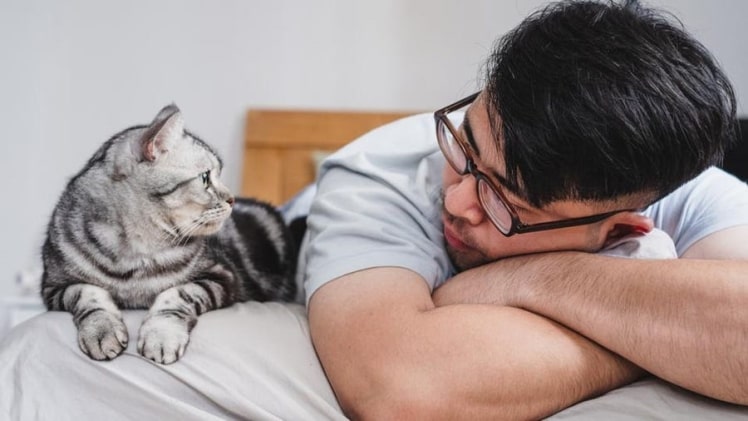You might be worried if you’ve noticed your cat twitching while they’re awake. After all, seeing your furry friend experiencing strange movements or behavior can be concerning. But don’t worry! In this post, we will investigate why cats twitch while awake and provide tips on how to handle it if your cat is exhibiting these movements.
What Causes Muscle Tremors in Cats?
As of age, they can experience muscle tremors in cats due to various causes. These tremors are usually caused by neurological issues or conditions such as feline lower urinary tract disease (FLUTD) or kidney disease. Another common cause of muscle twitching is an electrolyte imbalance caused by dehydration or poor nutrition. Other factors contributing to trembling in cats include anxiety, stress, or exposure to toxins or parasites.
In rare cases, twitching can signify more serious health conditions such as seizures or encephalitis (brain inflammation). If your cat is exhibiting other symptoms in addition to twitching—such as confusion, seizures, and loss of appetite—it’s important to take them to the vet for a diagnosis and treatment plan.
Diagnosing Muscle Tremors in Cats
To diagnose the cause of trembling in cats, your vet will likely start with a physical examination and review any medical history you can provide about your pet funnyjok. They may also recommend blood tests and x-rays to understand your cat’s health better. Once they have diagnosed the underlying cause of the tremors, they can create a treatment plan that addresses any underlying medical issues and any lifestyle changes that will help reduce the frequency and severity of the tremors.
Treating Muscle Tremors in Cats
Once your vet has diagnosed the cause of your cat’s muscle tremors, they may recommend one or more treatments depending on what is causing them thestyleplus Treatment options may include medications such as anti-seizure drugs and supplements such as omega-3 fatty acids; lifestyle changes such as increasing exercise time; changes in diet; increased environmental enrichment, stress reduction strategies, and other therapies that address underlying medical issues such as FLUTD or kidney disease. Your vet will help you determine which treatment option(s) are best for your pet based on their needs and condition(s).
Living with Muscle Tremors in Cats
If you have a cat that experiences muscle tremors during wakefulness, there are some steps you can take at home to make sure its quality of life remains high despite its condition:
- Make sure their diet contains all essential vitamins and minerals: Working with a veterinarian-recommended pet nutritionist can help ensure that your cat’s diet is balanced and meets all their nutritional needs for optimal health despite their condition(s).
- Give them plenty of enrichment activities: Making sure there are plenty of toys around for stimulation throughout the day helps keep cats mentally stimulated, which helps reduce feelings of boredom which could lead to increased anxiety levels which could further exacerbate tremoring muscle episodes if left unchecked.
- Provide plenty of love & affection: Spending quality time with our pets provides much-needed comfort during times when they experience these episodes, so showering them with love & affection during these moments helps them feel secure & safe despite feeling scared & anxious over these episodes occurring intermittently throughout their day-to-day lives.
- Regularly check up on them: Especially when we notice our pets having an episode, it’s important that we monitor how long it lasts & if it frequently recurs so if necessary, we can take them to our vet for further examination & diagnosis, so we know how best to proceed from there with helping our feline friends manage these episodes better in the future overall into their future years ahead!
Conclusion
Although muscle cramps while awake may not always be easy to spot—and sometimes difficult even for veterinarians themselves—it is important that owners pay attention when something unusual happens with their pet’s behavior because it could be indicative of an underlying issue requiring professional attention from a veterinarian for proper diagnosis & management from now on into the future! Thank you for reading this blog post about why cats twitch while awake & what steps owners should take if they notice this behavior occurring intermittently throughout their pet’s day-to-day lives! Remember: When it comes down to addressing questions like “why is my cat twitching while awake?” Prevention through early detection goes a long way towards ensuring our beloved feline friends enjoy happy, healthy lives no matter what life throws at us along our journeys together!

